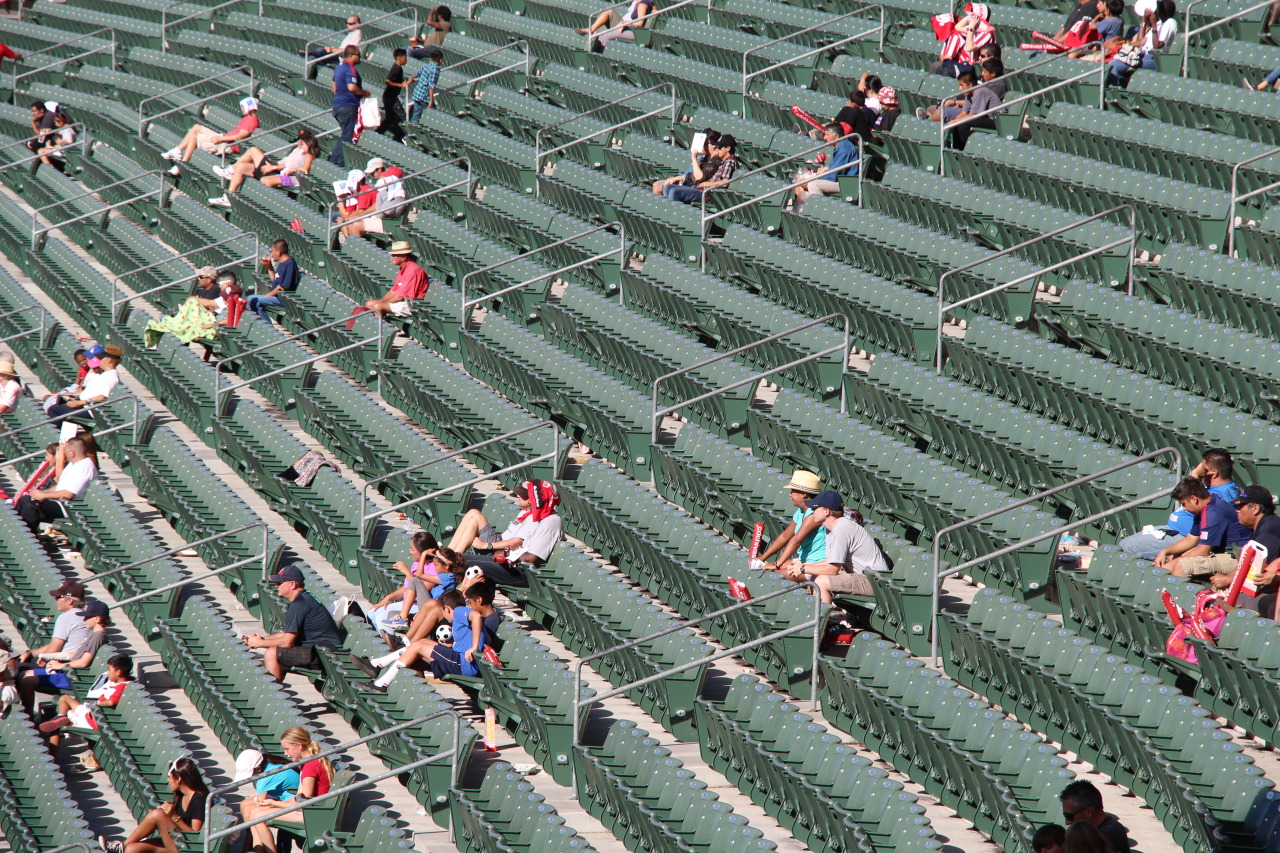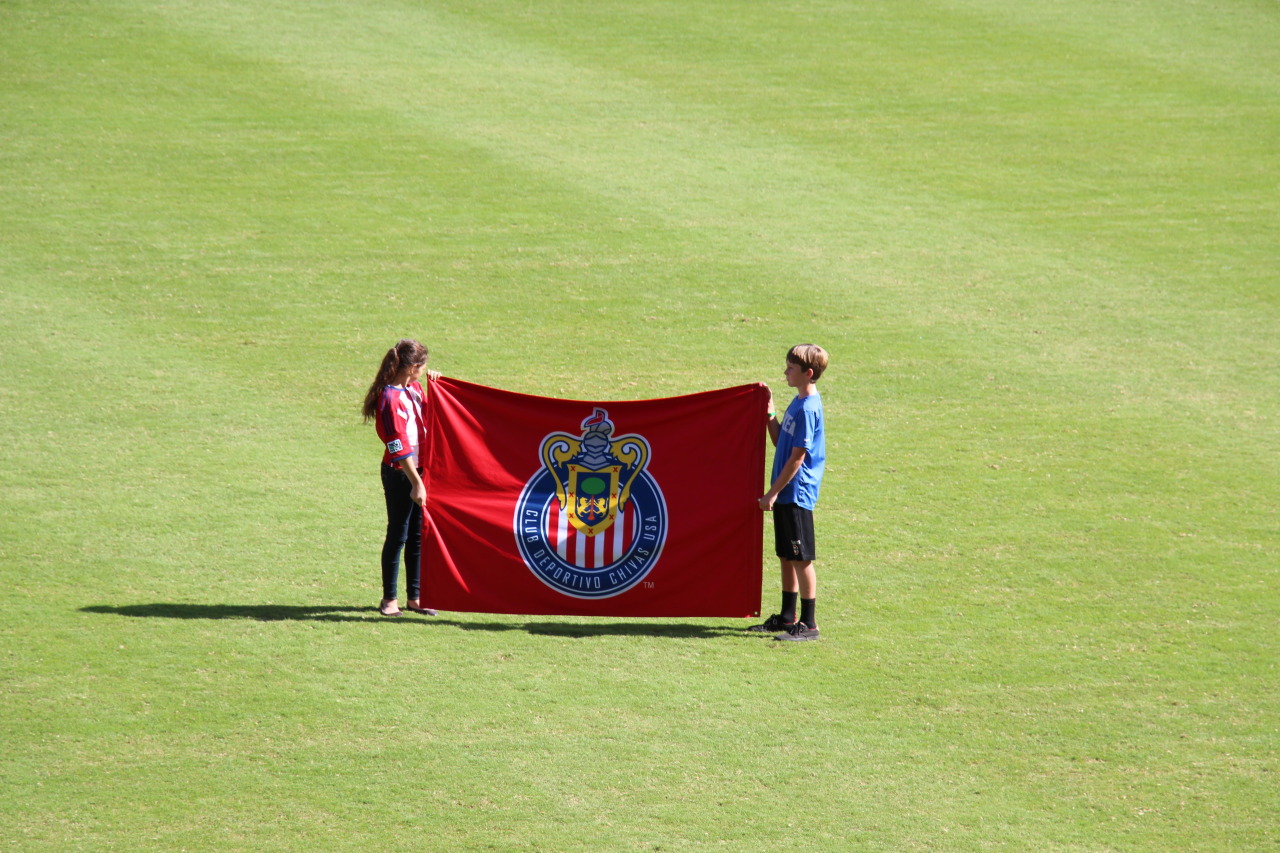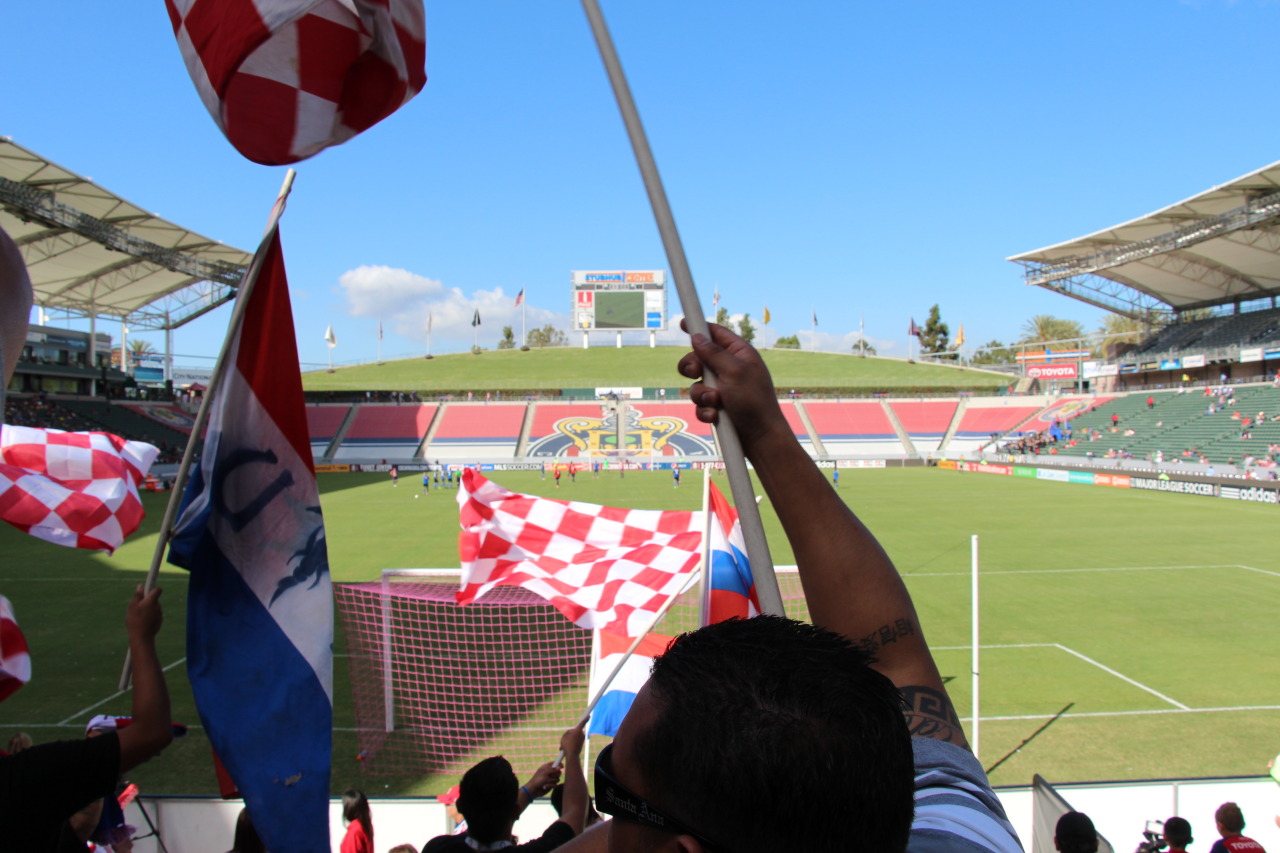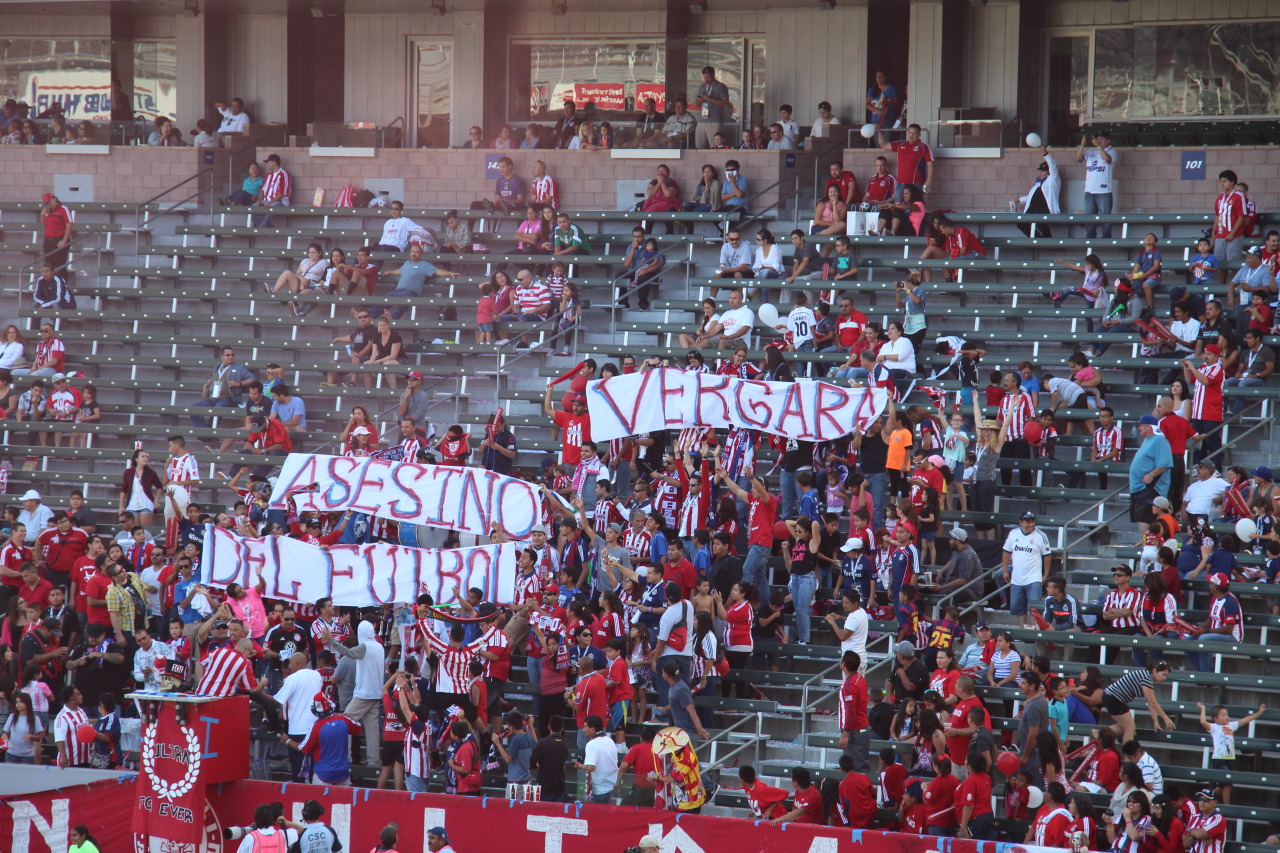What Happens When a Club Dies?
What Happens When a Club Dies?
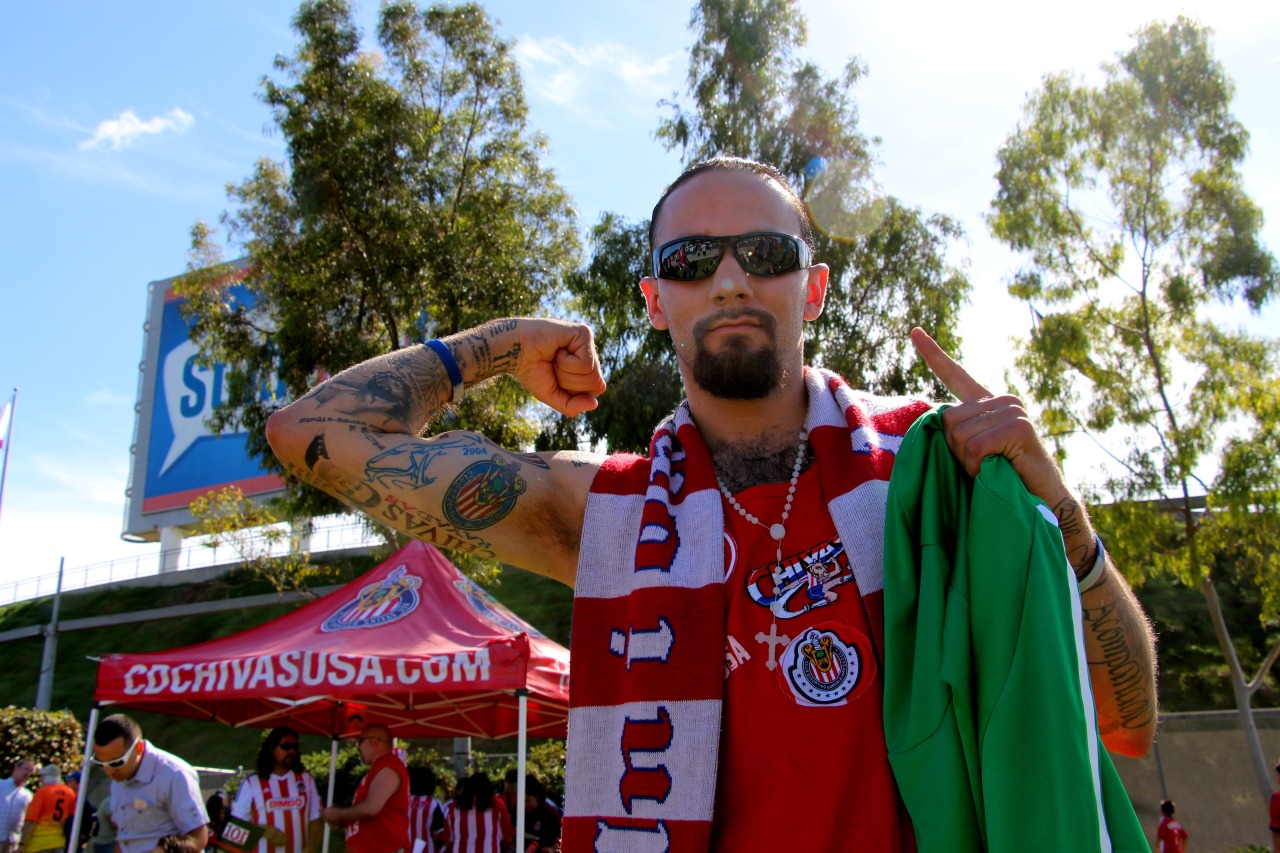
What Happens When a Club Dies?
By Zack Goldman and Maxi Rodriguez
It’s often said that a football club can form the cornerstone of a community, but few pause to consider what happens to that community when a team closes its doors.
On Sunday, that idea became a reality for one group of supporters in Los Angeles.
When Jorge Vergara, the Mexican owner of Guadalajara club Chivas, was awarded an expansion team in Major League Soccer in 2004, it marked a major step forward for the league, linking it to one of the most storied football clubs in the Americas and the promise of massive foreign investment.
What resulted instead was a decade of record-breaking futility on the park, consummate mismanagement off it, and a headache for a league that was left with, plainly, a mess of a club—one that couldn’t win games, couldn’t draw fans, and even became embroiled in a lawsuit that alleged the team discriminated against its non-Latino employees.
Put simply, what was once seen as MLS’s golden ticket was now unquestionably its weakest link and trailing unacceptably far behind the pack, culturally and competitively, in a proudly diverse and rapidly improving league.
Sick of losing money and credibility with an organization unable to thrive in its uniquely lucrative market, MLS opted to purchase the team back from Vergara at the beginning of 2014, with the intention to resell and rebrand the second Angeleno franchise.
But while that decision was initially met with enthusiasm from supporters, that sensation quickly became uncertainty and anxiety as no new ownership group materialized and reports surfaced that the team would not simply rebrand, but take an indefinite hiatus.
As such, Chivas USA took the field on Sunday in what most expect to be the final match in club history — and the scene did little to refute such claims.

Before even entering the stadium, one was greeted by the deserted “Chivatown” — a once lively prematch festival, replete with food and entertainment, that was now a few scores of fans huddled around a merchandise tent hawking game-worn, autographed Chivas USA gear for sub-bargain bin prices.
This wasn’t a funeral as much as a fire sale in a ghost town.

Inside the stadium, it didn’t look much less desperate or desolate. As pools of empty green seats and miles of club-branded tarp stretched between small smatterings of supporters, it was easy to see the fiscal predicament that MLS was faced with.
But, to merely discuss Chivas USA as a failed experiment, or a number in red at the bottom of a balance sheet, or a problem that’s easier to remove than to solve is, in and of itself, the most powerful failure of this situation.
To do this is to miss the real tragedy of Chivas USA and to disregard the true stakeholders in it: the fans.

“I’ve got a lot of emotions going on,” one supporter said.
“It’s frustration. It’s frustration because modern football doesn’t respect passion. People see this as a fucking business — and, yes, we understand that it’s a business, but you fuck with people’s emotions and it hurts. For us to be here for ten years — our kids were fucking raised in this stadium. They were fucking born and raised here. This is our last game and it really hurts because we’re not going to be able to see our friends every 15 days … it’s not going to be the way it is right now.”
While most fans we spoke to agreed something had to be done with the team, they expressed dismay that throughout Chivas USA’s season of uncertainty, supporters have been relegated to the realm of afterthought, forced to wade through cryptic organizational doublespeak in league statements every few months only to find themselves still unsure, on the last day of the season, if they’ll even have a club to support the following year and beyond.
It’s understandable, then, that fans — even the more optimistic ones we encountered — didn’t view Sunday as anything other than a final chapter and a hiatus as anything other than the end of a community that they had built together.

It was a community that could be seen just before the match when a row of supporters were let onto the pitch to sing songs and wave flags behind the Chivas USA lineup during player introductions.
It was a fitting reminder that for all the negative coverage that trailed the team throughout its final years, this club was more than its hapless performances on the pitch and in the boardroom. This was a club with fans who would give anything for the badge, just as much as any other supporters would — and by putting a club on hiatus, you were putting these fans on hiatus as well.
These were fans who scheduled their lives around matches. Fans who drove for many hours every weekend to spend fewer hours at a mostly empty stadium. Fans who did everything in their power to keep their team afloat. Fans who read headline after headline in vain hope that some of the words would be true. Fans who put up with frustration, and uncertainty, and, most of the time, awful, awful football. Fans who were forgotten. Fans who were treated as collateral damage. Fans who still haven’t been given any definitive answers. Fans who still cling to the minute possibility that their club might come back. Fans who deserved better.
When a football club dies, everyone is let go.
All parties, in some way or another, are disbanded and forced to move on. However, Sunday was an opportunity for players and fans alike to share one last ephemeral moment of being Chivas USA, together.
They ended up holding on for a 1-0 win. But, in a rare moment in football history, the victorious team cringed at the final whistle, knowing it had brought a fate far worse than any loss.

